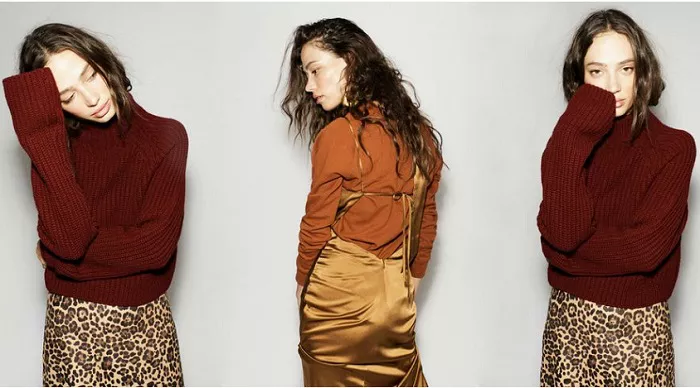Finding Confidence in Fashion: A Journey Through Weight and Style
When Libby Faulkner lost about 50 pounds, she turned to tighter clothing. However, her choices were not always fashionable. “I couldn’t put outfits together. I just focused on being skinny,” she says. She believed that losing weight would solve her problems and make her stylish. But as she began to regain some weight, she discovered that her confidence issues stemmed not from her size but from her belief that she could only dress a certain way when thinner.
Faulkner realized that becoming skinny did not bring her the happiness she anticipated. Determined to change her mindset, she stopped limiting her wardrobe. She began experimenting with colors and patterns, finding that gaining weight actually enhanced her style and confidence. In a society that often equates thinness with beauty, narratives that promote inclusive fashion are crucial.
The Pressure to Conform to Body Standards
Lauren Morgillo experienced similar pressures. Fearing the “freshman 15” in college, she worked hard to stay as thin as possible. She thought that weight loss would boost her confidence, so she wore tight jeans and crop tops, believing this made her look good. Looking back, she describes those outfits as “atrocious.”
During the pandemic, Morgillo began gaining weight and found her old clothes no longer fit. “They looked like I was squeezing into something that wasn’t meant for this new body,” she recalls. She felt pressure to wear clothes that were “flattering,” often trying to hide her arms and emphasize her waist.
Vicki Reckless, a body-positive influencer, also struggled with her personal style. Influenced by fitness trends, she often wore baggy clothing, not out of comfort but because she disliked her body. Once she recognized this pattern, she began embracing her weight gain as part of her journey toward self-acceptance.
“I realized I was holding myself to the standards of my teen years,” Reckless explains. “I needed to accept and love my body as it is now.”
Embracing Personal Style and Comfort
Morgillo started experimenting with different styles, such as lower-waisted pants and layered outfits. She put effort into color coordination, developing a unique personal style instead of merely wearing whatever fit.
Cognitive psychologist Carolyn Mair, author of The Psychology of Fashion, notes that accepting one’s changing body can help reject societal pressures. “Looking good is also about feeling good,” she states. Many people become more aware of the importance of comfort in clothing, which leads to a more enjoyable fashion experience.
Faulkner now embraces her body and wears clothes that challenge conventional ideas of “flattering.” “People are taught to wear clothes that make them look smaller,” she notes. “But I don’t see that as a problem, and I don’t think others should either.”
Previously, Faulkner avoided clothing that exposed her arms, back, or legs. Now, she feels free to create outfits with poofy skirts and oversized tops, even if they may make her appear “bigger.”
Trends and Individuality in Fashion
Morgillo observes that women’s body types often fall in and out of fashion. After a rise in popularity for curvier bodies in the late 2010s, she sees a shift back toward the “Y2K thin” ideal, driven by nostalgia for figures like the Victoria’s Secret Angels and trends such as low-rise jeans.
Despite this, fashion is becoming more individualized, with uniqueness celebrated in today’s trends. “Thinness is still valued, but people are now more interested in seeing unique styles rather than simply fitting in,” Morgillo explains.
Reckless found confidence by sharing body acceptance content on Instagram and TikTok in 2020. This year, she began offering style tips for midsize and curvy figures alongside her body-positive messages.
“A lot of body image issues are not really about our bodies,” Reckless asserts. “They often stem from wanting to feel included or accepted. Dressing for your body shape can sometimes make you feel alienated from trends.” Ultimately, she realized that chasing trends didn’t bring her happiness.
Through their journeys, Faulkner, Morgillo, and Reckless demonstrate that confidence in fashion comes from embracing one’s body and personal style, rather than conforming to societal pressures.
Related topics:
- H&M Reports Q3 Sales Dip Amid Weather Challenges, But Sees Promise In September
- Pandora Reports Record Sales And Completes Transition To Recycled Metals
- Chloé’s Latest Collection Shines With Femininity At Paris Fashion Week

